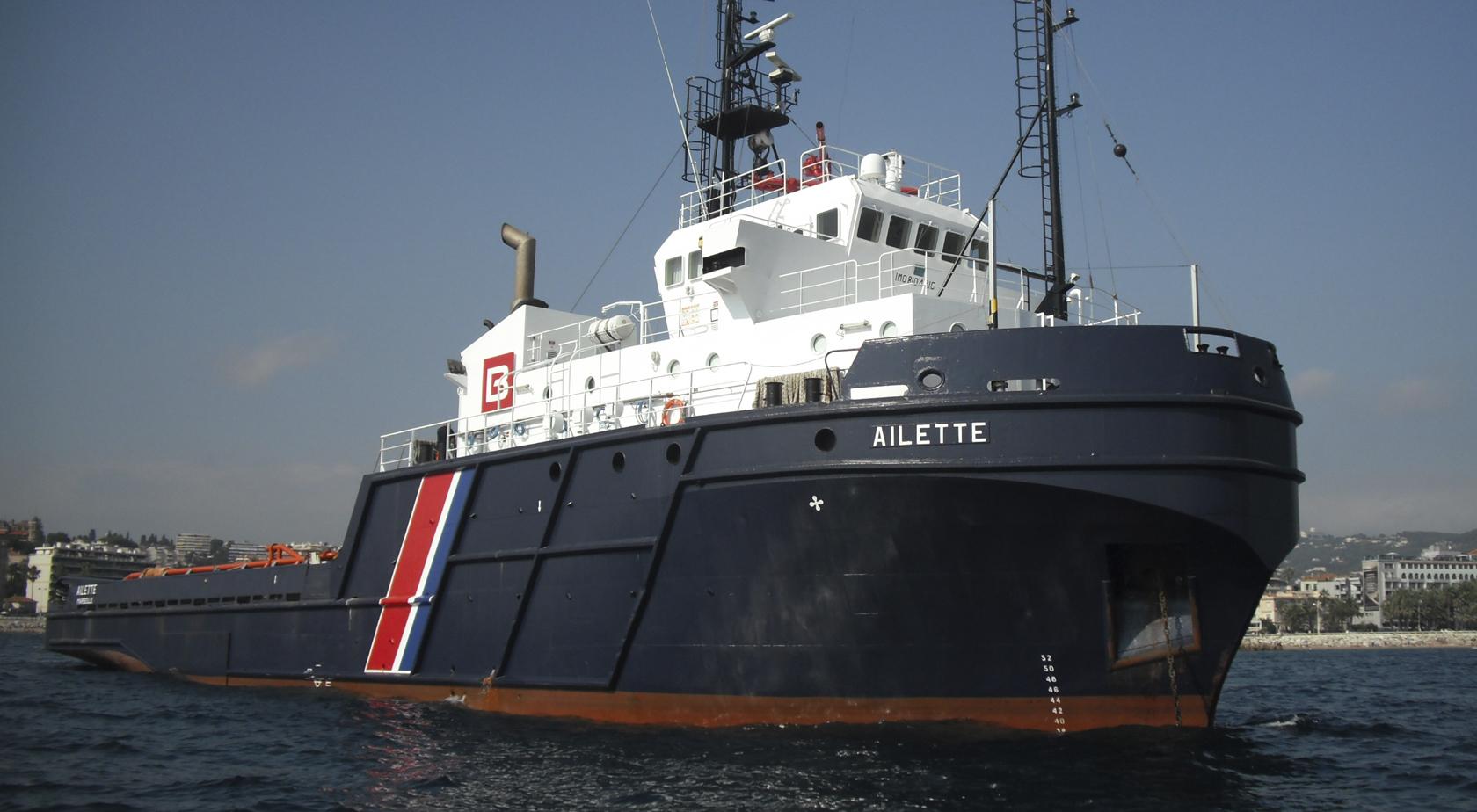
The Ailette, on alert 24 hours a day, 7 days a week
Within the BOURBON fleet, the Ailette is a vessel for antipollution and coastal monitoring missions. Her captain explains.
Based in the Mediterranean, out of Toulon, the Ailette is an AHTS (Anchor Handling Tug Supply) Vessel, which was gradually converted into a Salvage, Assistance, and Antipollution vessel (BSAD). Her mission ? It's multi-fold. "Oil recovery remains our priority mission. But we can also serve as a training support for hoisting, perform towing, conduct port work, etc... That's the utility of an AHTS vessel: it allows us to perform multiple services!", explains E. Giroud, captain of the Ailette.
Aboard the vessel is a crew of 7 people including, in addition to the captain, a mate, chief engineer, second engineer, a bosun, a seafarer and a seafarer cook. "Working in unison is what enables us to meet the challenges of our business. Motivation, precision, adaptability, and skills are some of the qualities that we all need to exercise every day in order to overcome unexpected events and make ourselves available at all times." Because the Ailette is kept ready to respond to alerts issued by the Maritime Prefecture of the Mediterranean and do so 24 hours a day, 7 days a week.
"Working in unison is what enables us to meet the challenges of our business."
Captain E. GIROUD
BOURBON OFFSHORE SURFREADY FOR ANY INTERVENTION
To accomplish its tasks, the Ailette relies on some advanced tools such as "the TRANSREC 250 pumping system for recovering pollutants on the water," says Captain. E. Giroud.
Each operation has its own dedicated technology. "The 'sweeping arm' is used for the recovery of large quantities of high viscosity hydrocarbons. The trawler Thomsea is designed for the recovery of heavy hydrocarbons, agglomerates, or algae. As for the containment boom, we use it on the high seas for the rapid containment of an oil slick."
The Ailette also has a dispersant spreading system, consisting of two folding arms each measuring 8 meters long. The ship can store up to 500 m3 of pollutants.
SIGNIFICANT MEMORIES
The most interesting thing about these missions? "The challenge and the variety. There's nothing repetitive in what we do: the conditions are never the same," says the captain of the Ailette. She tells of two very different events that have marked her and her crew: "In July 2013, we picked up a rotting, 30m whale that died of old age off Corsica. This whale represented a danger to navigation, but also a terrible pollution source for coastal beaches. All of us will never forget the stench of this beautiful animal." More gratifying: "In 2014, we performed a towing exercise involving the aircraft carrier Charles de Gaulle. Hooking up to the flagship of the French fleet... it was just great," says captain. E. Giroud.


